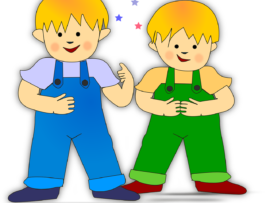Holy Moses, where did he go?
Since arriving on the scene at the beginning of the book of Exodus, Moses (Moshe) has been a ubiquitous character in the Torah narrative; his presence towers over all others like a Colossus.
But this week he is gone.
Sure his role and influence are hinted at, but in Tetzaveh, unlike other Torah portions, his name is not mentioned and he does not take center stage.
Tradition tells us that it was Moshe's wish to take a back seat, both at that point in history and for all eternity when this Torah portion is read.
Why did Moshe shy away from the limelight at this specific time? Despite his unmatched humility (actually because of it), Moshe was the divinely appointed leader, a role he took on hesitantly, but accepted nonetheless. So what changed in this week’s parsha?
The Rabbis explain that Moshe wanted to shift the focus from himself to his brother, Aaron. This week’s Torah portion focuses on Aaron and his family and their role as priests in the Holy Temple. Moshe wanted Aaron to have "his day in the sun," without Moshe's presence casting a shadow over the proceedings.
While this represents an important lesson for everyone, the teaching is especially poignant when it comes to brothers.
Cain and Abel. Yishmael and Yitzchok. Yaakov and Esav. Joseph and his brothers . . .
From the very beginning of time, the world has suffered from sibling rivalry, frequently with tragic consequences.
Then came Moshe and Aaron. Their virtues are extolled in the classic words of King David:
“Behold, how good and how pleasant it is for brothers to dwell together in unity!” (Psalms 133:1)
But that’s not all. The “sweet singer of Israel” continues:
“It is like the precious ointment . . . that ran down upon the beard of Aaron, running down over his garments . . .”
The ointment that ran down Aaron’s beard was so beautiful and precious because it was Moshe who did the anointing. And it wouldn’t seem easy for Moshe to do so. The Medrash tells us that all along Moshe thought that he would be the one serving as High Priest and wearing the special garments – only at the last moment was this privilege taken away from him and given to his (seemingly) less prestigious brother. Not only that, on the very day that he was to anoint his brother with the special oil that would run down his beard onto those very garments, Moshe was told that he would have to shave his own beard, something that was not easy to do.
Moshe lost both his garments and his beard. And yet he experienced such joy for his brother that he felt as if the precious oil was running down his own (at that moment, non-existent) beard. He shared in his brother’s happiness like it was his very own.
Lest you think that Moshe and Aaron got along so well because they had similar personalities, the Talmud and Medrash tell us that this was not the case. In fact, they were diametric opposites of one another – Moshe represented strict justice and Aaron compromise. And yet they shared completely in each other’s successes; Moshe in Aarons and Aaron in Moshe’s (see Exodus 4:14).
Neither one felt that they were losing when the other gained, and indeed they weren’t. The paradox is that in the very Torah portion where he isn’t mentioned, Moshe is teaching us this fundamentally important lesson.
The place to start putting this concept in practice is the place where it is often hardest -- with our own siblings, family, and closest friends. But we shouldn’t stop there. The entire Jewish people are brothers and sisters – some have beards, some don’t; some are more talented some less so; some more prestigious some less. But as long as we realize we are all on the same team, when one gains, we all gain.
King David ends off his paean to Moshe and Aaron with the following:
“There G-d commanded the blessing, life for evermore!”
G-d commanded the blessing. It is ours for the taking. May we have the wisdom to bring it into our lives.
Dedicated in honor of my Holy Brothers and their families whose kindness and generosity brings blessing into my life. May we live with “goodness and pleasantness” always and forever, giving joy to our dear Mother, shetichye.
Also dedicated in memory of our beloved father, Rabbi Pesach Oratz, ZT”L, who passed along his unique generosity of spirit to his children.

